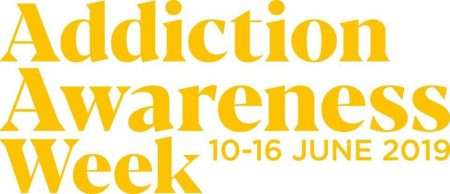Have you ever had a hard time remembering what happened after a night of drinking? Do you remember bits and pieces, or can you not recall anything at all? If this sounds familiar, you have experienced alcohol-induced amnesia. Also known as blackout drinking, it is mainly associated with excessive or rapid alcohol consumption. However, it’s not only alcohol that is to blame. Other drugs can create the same effect as well.
Although some people may find blackout drinking fun, the reality of doing so is quite dangerous. Not only can blackout drinking cause problems in the short-term, it can also create long-lasting consequences.
What is Blackout Drinking?
A blackout is also referred to as drug or alcohol-induced amnesia and is defined as partial or complete memory loss. Both short and long-term memory may be impaired.
A person is likely to blackout when they consume too much alcohol too fast. However, this is not a strict guideline. It will depend on tolerance, and on the specific person. Some people are more likely to experience blackouts, and others rarely or never do no matter how much they drink.
Contrary to popular belief, alcohol does not erase memories. Rather, it prevents them from forming in the first place. Alcohol appears to interfere with a process called “transfer encoding”, which is when short-term memories are made into long-term memories.
There are two types of blackouts: en bloc (complete blackout) and fragmentary (partial blackout). Complete blackouts are when a person cannot recall any event from the day before. Partial blackouts are when a person will be able to recall some of the events, or trigger a memory via a reminder. Partial blackouts are also known as brownouts or greyouts.
A Blackout is Not What It Seems
People may associate the term “blackout” with passing out. In this case, that’s not what it means. In fact, it’s quite the opposite. A person in the blackout stage of drinking will likely continue to socialise and act normally. Some people may even look sober.
Although the person will seem functional, they will not remember what they said or did the next day. Because of this, if they do something bad, others may refuse to believe that they weren’t mentally there.
Signs of a Blackout
A person in the blackout stage may not be easy to spot. After all, they can carry on a conversation and continue any activity they were engaged in before. However, there are some signs that a person may show once they reach that critical drinking point, such as:
- Being easily distracted
- Repeating themselves in conversations
- Forgetting where they are or what they did, even if very recently
- Unable to follow the logic of a story or conversation
- Zoning out or “glassy-eyed stare”
- Not interested or concerned about what’s going on around them
- Engaging in risky behaviours
Dangers of Blackout Drinking
A blackout itself is not dangerous if it happens. Rather, it is the excessive or rapid alcohol intake that is.
Alcohol reduces function in various parts of the brain, including that which is responsible for judgement and self-control. Thus, any amount of alcohol can lead to lower inhibitions and poor decision-making.
A person may engage in risky or dangerous activities, such as unprotected sex or drunk driving. They are also more likely to do something illegal. Emotions are affected as well, so the person is likely to get into fights or violent situations. Physical injury is not uncommon either.
The worst part is that they won’t remember what happened or how they got into the mess the next day. This can escalate their problem further. Not only can this cause social issues, but legal issues as well.
Heavy drinking, of course, is tied to a number of health problems in the long-run. This includes brain damage, heart disease, liver disease, anaemia, and of course, alcoholism.
Chronic heavy drinking, even without blackouts, can also lead to Wernicke-Korsakoff Syndrome. Also known as ‘wet brain’, it causes problems with concentration, memory, and cognition.
Although a single blackout itself doesn’t damage the brain, chronic episodes can create serious problems. Regular blackouts may create general memory problems for a person, even when they are not drinking.
This is especially dangerous for young people. Regular blackouts in young people can have long-term harmful effects on a developing brain.
“Everyone gets blackouts, don’t they?”
Although it may seem like a normal thing, not everyone experiences blackouts. Even with alcoholics, only 60% have reported to have alcohol-associated memory loss. However, one doesn’t have to be a heavy drinker to deal with them. Social drinkers are affected by it as well. It is not yet completely clear why some people get blackouts and some don’t.
Recent research has found that some people are more prone to blackouts than others. Women, for example, are more likely to get blackouts than men. Because of lower body mass and poorer alcohol metabolism, women are generally more affected by alcohol.
Anyone with a poor ability to metabolise alcohol, such as those with an unhealthy liver, tends to be more prone to blackouts. There are also a number of health-related issues that can cause blackouts that are not alcohol-related. Some examples are low blood pressure, low blood sugar and epilepsy.
Insomnia can worsen blackouts as well. Sleep alone plays a key role in memory formation and storage. If combined with alcohol, the blackouts can be significantly worse.
Combining substances can also elevate the risk for blackouts. For example, alcohol and medication, or alcohol and drugs may lead to more blackouts.
In addition, it is believed that there may be a genetic aspect to blackouts. If the person has alcoholic parents, they will likely get blackouts after heavy drinking. It was also found that some people have a so-called “chemical switch”, where even a small amount of alcohol can trigger memory loss.
Preventing Blackouts
Blackouts are caused by rapid or heavy drinking, so you should practice responsible drinking to avoid them. This includes:
- Pacing your drinks
- Hydrating with water/non-alcoholic beverages between drinks
- Not drinking on an empty stomach
- Avoid smoking
- Not drinking if sleep-deprived
- Not mixing drinks with other drugs or medications
Is Blackout Drinking a Sign of Alcoholism?
Blackouts do not necessarily mean that you have an alcohol misuse problem. However, if you find that you are experiencing them more and more often, this can be an indication that you need to seek help. Blackouts occur from rapid/ heavy drinking, which is also symptom of alcoholism. Your blackout drinking may be a tell-tale sign that you have alcoholism.
If you’re worried about your drinking, it is best to consult a GP or an addiction specialist for an evaluation. You can also start with a self-assessment test, which can give you better insight into your drinking habits.
Regardless, blackouts and heavy drinking are both dangerous habits. They can lead to a number of problems, both in the short-term and long-term. It is always best to drink in moderation and drink responsibly.



